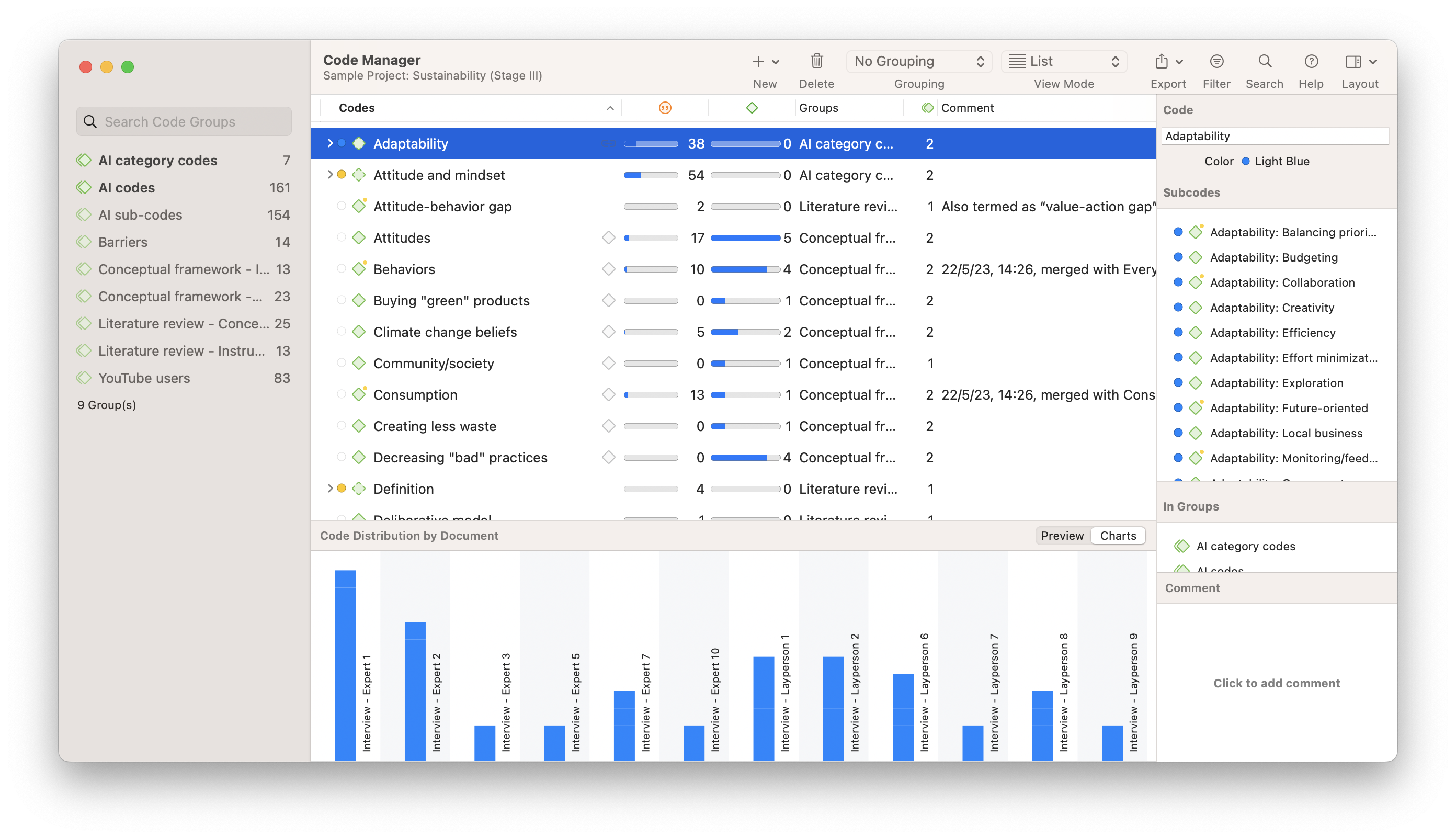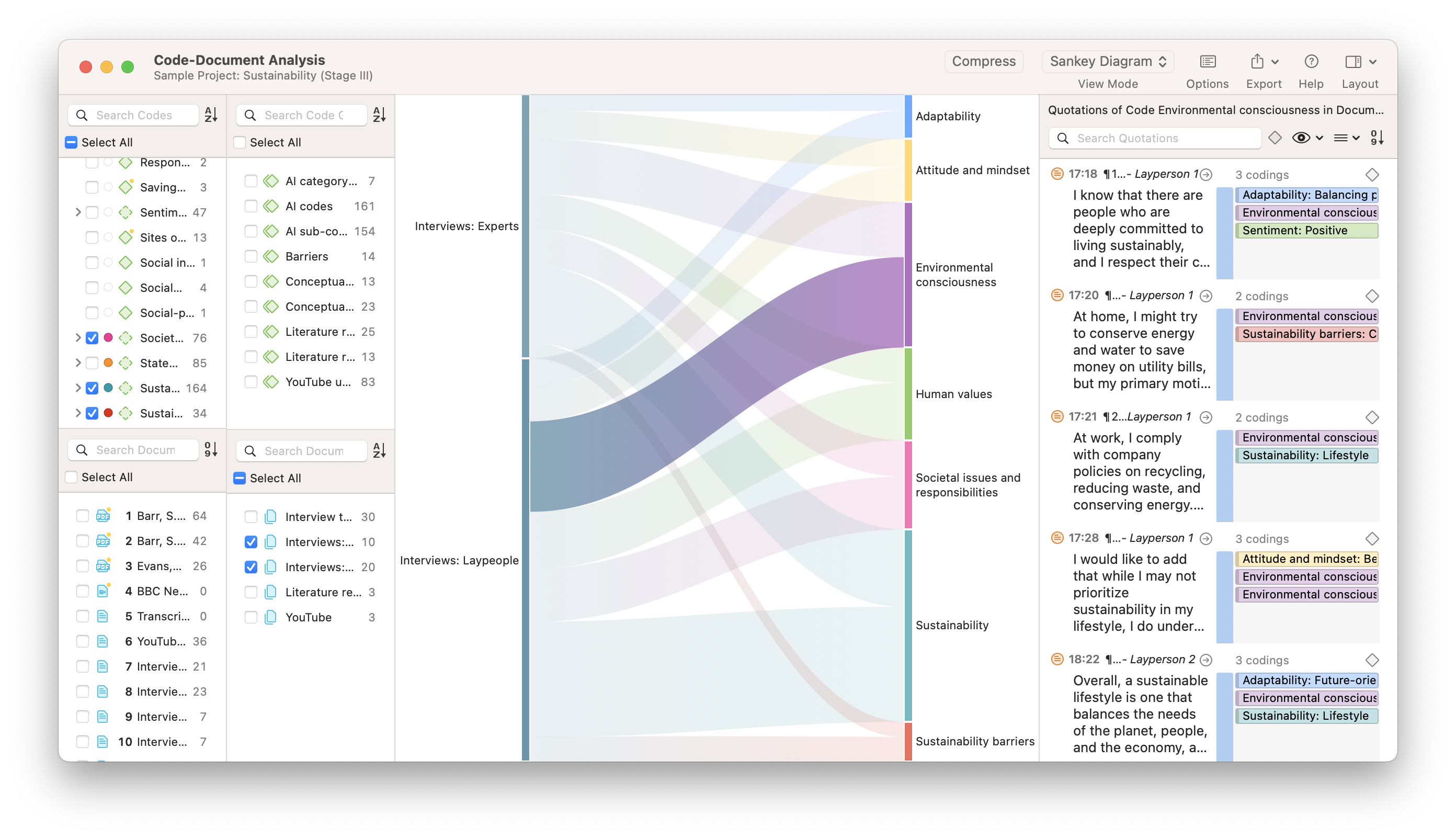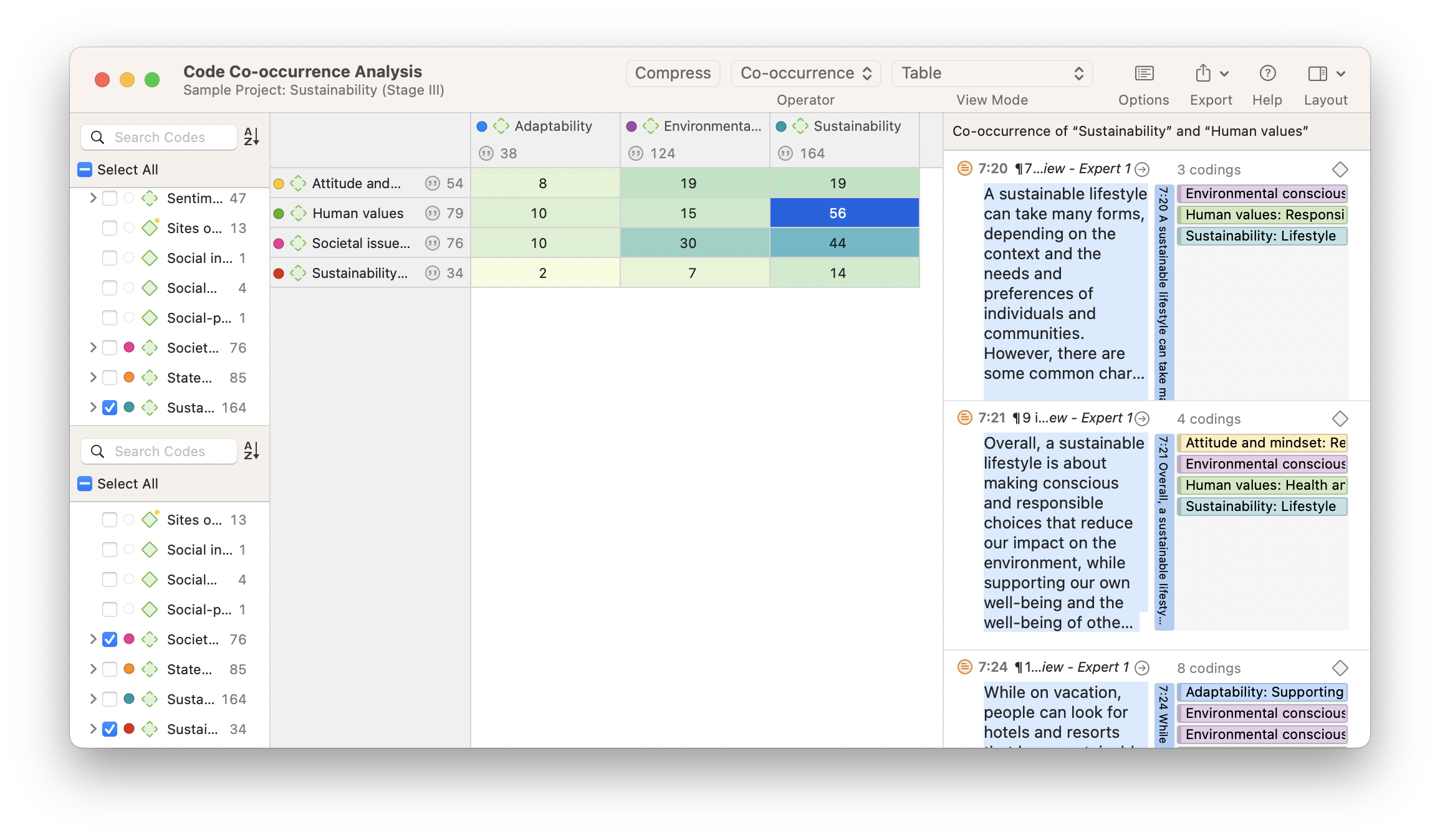- Handling qualitative data
- Transcripts
- Field notes
- Memos
- Survey data and responses
- Visual and audio data
- Data organization
- Data coding
- Coding frame
- Auto and smart coding
- Organizing codes
- Qualitative data analysis
- Content analysis
- Thematic analysis
- Narrative research
- Phenomenological research
- Discourse analysis
- Grounded theory
- Deductive reasoning
- Inductive reasoning
- Inductive vs. deductive reasoning
- Qualitative data interpretation
- Qualitative data analysis software
- How to cite "The Ultimate Guide to Qualitative Research - Part 2"
- Thematic analysis vs. content analysis
Deductive reasoning and analysis
Deductive reasoning is an approach to science where researchers seek to confirm (or revise) existing theories or test hypotheses. Deductive research differs from inductive research, which is aimed at creating new theories or developing existing theories. Inductive and deductive research work hand in hand to allow researchers to draw conclusions on and understand human behavior and social theory fully.
ATLAS.ti is ideal for all sorts of research, including the deductive research approach. Let's look at the nature of the typical research structure, then examine some key differences between inductive reasoning and deductive reasoning. Finally, we'll look at methods that a deductive approach can employ and some of the tools that ATLAS.ti provides to help you with your research.

Understanding scientific investigation
All scientific research involves the organization of knowledge generated from studies where researchers have analyzed empirical data.
For researchers to develop a particular theory, they use their empirical observations to generate an explanatory conceptualization that comprises discrete elements and the relationships between them. An existing theory is merely any conceptualization that the larger community of researchers agrees upon to develop further research.
Deductive research is common in contexts where researchers conduct similar research based on existing theory or new experiments intended to verify competing theories.
Inductive and deductive reasoning
Essentially, researchers pursue deductive research to confirm an existing theory from the top to bottom. On the other hand, inductive research typically involves bottom-up analysis of data for patterns without an attempt to confirm theory. Inductive analysis can thus inform and/or develop theory (e.g., through a grounded theory approach).
There are shortcomings to both deductive reasoning and inductive reasoning. Deductive logic alone cannot account for relatively unfamiliar phenomena that cannot be explained by existing theory while relying exclusively on inductive study. Inductive logic can unnecessarily repeat research efforts in contexts where confirmatory inquiry is more beneficial.
What is the right approach for your research?
Holistically, deductive and inductive approaches to analysis typically go hand in hand, as social science research is highly context-dependent yet researchers strive to contribute to broader understanding around a topic. The degree of theoretical coherence in the context you want to study will largely determine whether deductive reasoning or inductive reasoning is more appropriate for your research.
You should consider incorporating deductive reasoning in your study design if previous researchers have already provided a relevant theory for your inquiry and your research question is aimed towards verifying this theory. Otherwise, highly novel and unexplored research will require new theories that inductive reasoning can provide.
ATLAS.ti can allow researchers to conduct analysis through inductive and deductive approaches. It can provide a place to organize and code your data for effective analysis.
What separates ATLAS.ti from other platforms is its machine-learning capabilities that can make the coding and analytical processes faster and more efficient. Especially when researchers have an existing theory they can apply to their data, ATLAS.ti can facilitate the deductive approach to analysis quickly and with a minimal learning curve.
When to use deductive reasoning
Consider an example where there is an existing theory about the mental health outcomes of young people. Let's say that a study employing inductive reasoning has identified several criteria for good mental health, including social relationships, financial well-being, and positive environmental factors such as time spent outdoors and adequate physical activity.
Let's imagine that researchers have conducted qualitative interviews and specific observations with young people to develop this theory, with the general conclusion that a young person who satisfies most of these criteria likely benefits from good mental health.
Up to this point in our imaginary example, inductive research has allowed researchers to collect data and assert that each criterion shares a relationship with the broader theme of mental health.
However, other researchers may be interested in verifying or challenging this framework through deductive reasoning. A researcher employing deductive reasoning assesses propositions proposed by researchers employing inductive reasoning to strengthen the existing theory or propose an alternative framework for the same social phenomenon. A qualitative researcher may follow a deductive approach to utilize an existing theory to make sense of their newly collected data.
For example, a deductive approach can collect data from a new set of research participants who meet the criteria of good mental health. Deductive reasoning typically views the established theory as a lens on that new data. If the criteria in that existing framework can be found in the data, then the deductive researcher has successfully confirmed that theory in this new empirical context. In addition, the framework can help the researcher organize and interpret the rich details of their qualitative data.

Employing a deductive approach
A deductive research strategy first requires that the researcher reads existing theories that a deductive argument can rely on. A persuasive researcher, in any case, needs to demonstrate that they are knowledgeable about the scholarship in the particular theory they want to develop.
In the absence of an existing theory, the research inquiry should adopt an inductive approach, particularly as there is no framework to apply to the data. In addition, if the researcher wishes to remain open to unforeseen ways in which the data might address their research question, an inductive approach would be more appropriate.
If the theory is already established, the researcher can create a set of codes from the criteria from that theory. In the example above, a deductive study has predetermined codes such as "financial well-being" or "positive environment" that can be applied in case they are present in the data.
The type of theory can also determine what sort of methods to employ. Theories that rely on the perspectives of research participants are well-suited to the use of qualitative interviews or quantitative survey data where the researcher elicits stated opinions.
On the other hand, theories whose developed hypotheses look at behaviors or actions require specific observations. In this case, a researcher may look to analyze video data or field notes taken during observations.
Role of deductive reasoning
Deductive reasoning applies to the data analysis phase of research. In other words, any research method involved in collecting data can lead to analysis employing a deductive approach.
While researchers employ an inductive study with the goal of developing inferences from the bottom up, deductive investigations begin with a theory or inferences that a researcher wants to examine (top to bottom) in a particular dataset.
Qualitative coding can comprise both inductive and deductive approaches. Under deductive reasoning, researchers take the theory they want to test and create a set of codes that represent the different elements of that theory and the relationships between those elements.
The Code Manager in ATLAS.ti can help you organize your deductive and inductive codes for your project. In other words, you can conduct deductive research with one set of codes to test an existing theory and conduct inductive research with another set of codes that can further develop theory. Codes in ATLAS.ti can be divided into code groups and labeled with different colors to help you keep track of relatively large and complex projects for effective data analysis.

ATLAS.ti tools for deductive research
Numerical analyses are also helpful when employing deductive reasoning. ATLAS.ti includes tools such as the Code-Document Analysis and Code Co-Occurrence Analysis that count codes applied to data, while Text Search and the Query Tool are ideal for determining frequencies and patterns in your project.
Of course, ATLAS.ti can accommodate both inductive and deductive strategies in any data analysis.
Text Search
When using theories that rely on what people say, the Text Search function is ideal for analyzing interviews and focus group discussions through deductive reasoning. Text Search can look for a word or phrase relevant to an established theory to help researchers determine whether and how that theory applies in the given context.

Code-Document Analysis
The Code-Document Analysis tool helps you examine the spread of your codes (or groups of codes) across different documents (or groups of documents) in your project. This is especially important for research inquiries concerned with analyzing or comparing which codes appear across the body of data.
Suppose you have a project where your interviews are divided into discrete documents. The Code-Document Analysis tool can then tell you how often and in what ways the parts of the theory you are examining are apparent in each interview.
This tool can help you examine whether and how the theory applies to your study; in other words, it can help you develop the theoretical contribution of your study.

Code Co-Occurrence Analysis
The Code Co-Occurrence Analysis tool works similarly to Code-Document Analysis, except you can examine overlaps of codes with each other. This is helpful to researchers when they are looking for patterns among codes or how specific elements of a theory operate in tandem.
Suppose there are cases when the criteria for mental health are present in observations where research participants do not feel they are in good mental health. In that case, what other circumstances exist or co-occur with those aspects, necessitating further research inquiry?
The Code Co-Occurrence Analysis tool can facilitate the deductive research approach while identifying new directions for your research.

Query Tool
The Query Tool can provide deductive reasoning with deeper analysis to confirm existing theory while also developing it. Examining data that meets specific filters, such as using certain codes or coming from a subset of data, may illuminate potential relationships between otherwise discrete criteria.
The Query Tool can help you identify segments of your data that match a defined set of criteria based on a combination of codes and/or documents. You can then look through the results to better understand why your data segments meet your criteria. This can aid the deductive research approach by identifying areas of theoretical development.




